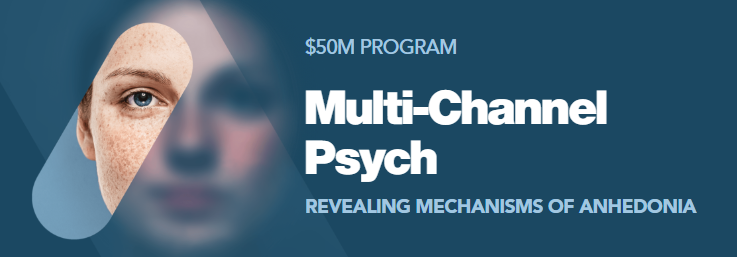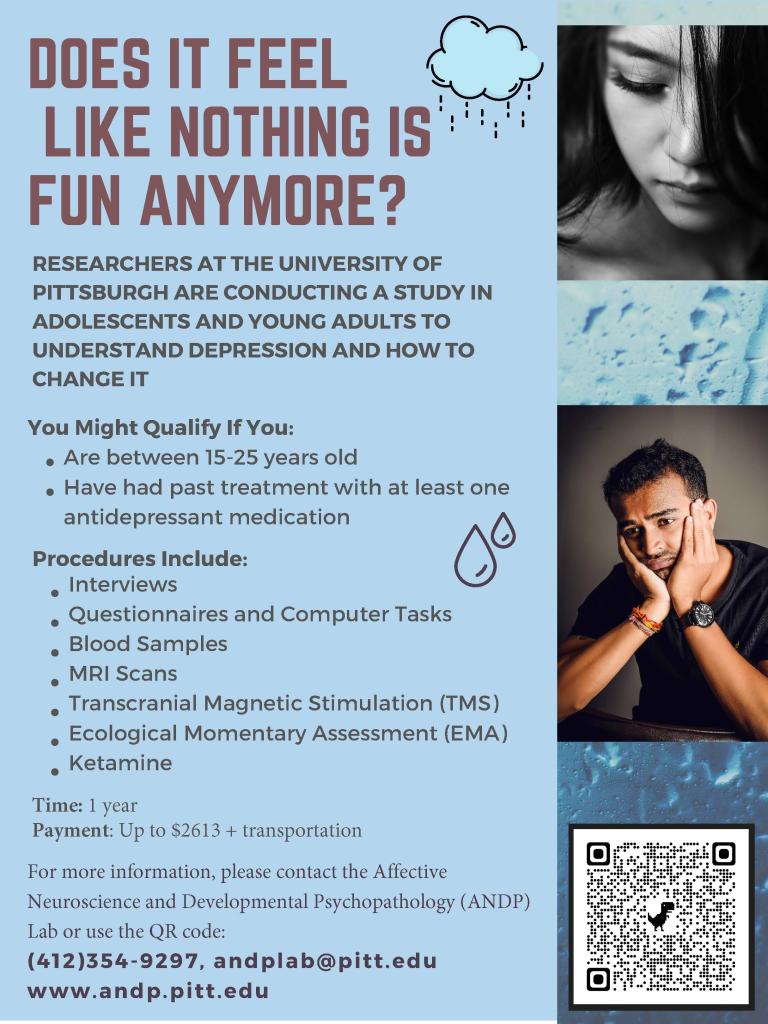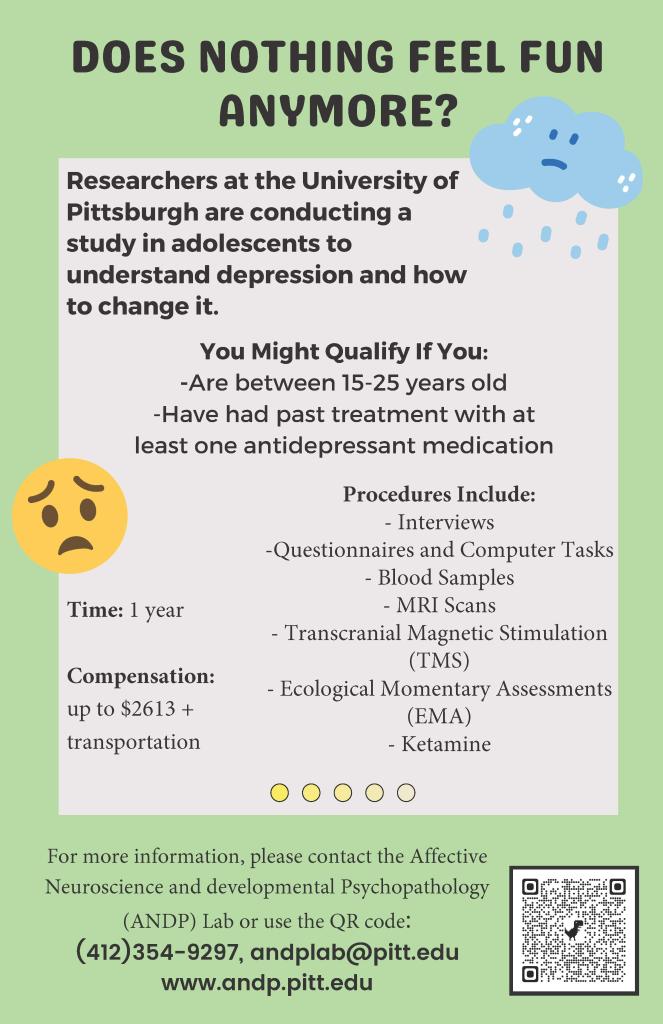Anhedonia, Development, and Emotions: Phenotyping and Therapeutics (ADEPT) Study
This study is sponsored by the Wellcome Leap: Multi-Channel Psych Program

![]()
The goal of the ADEPT Study is to understand anhedonia in young people and how it changes based on treatments targeting the brain circuit underlying it. Anhedonia is a challenging mental health symptom that involves difficulty with motivation to experience pleasant events. This study could help develop treatments for people whose depression does not improve with traditional treatments. IRB: STUDY21120080, ClinicalTrials.gov: NCT05487885
The ADEPT Study includes two phases:
- Phase 1 includes a series of activities to measure anhedonia, including an MRI scan, blood draw, behavioral task, clinical interview, questionnaires, and app-based assessments of experiences and behaviors.
- Phase 2 involves therapeutic activities, such as transcranial magnetic stimulation (TMS), positive affect training, and, for some people, ketamine administration.
This study is now closed to recruitment.
Current Collaborators
- Kristen Eckstrand, MD, PhD - University of Pittsburgh
- Neil Jones, PhD - University of Pittsburgh
- Helmet Karim, PhD - University of Pittsburgh, The Geriatric Psychiatry Neuroimaging (GPN) Lab
- Jihui Lee, PhD - University of Pittsburgh
- Bea Luna, PhD - University of Pittsburgh, The Laboratory of Neurocognitive Development (LNCD)
- Rebecca Price, PhD - University of Pittsburgh, The Clinical Application of Neuroscience (CAN) Lab
- Neal Ryan, MD - University of Pittsburgh


